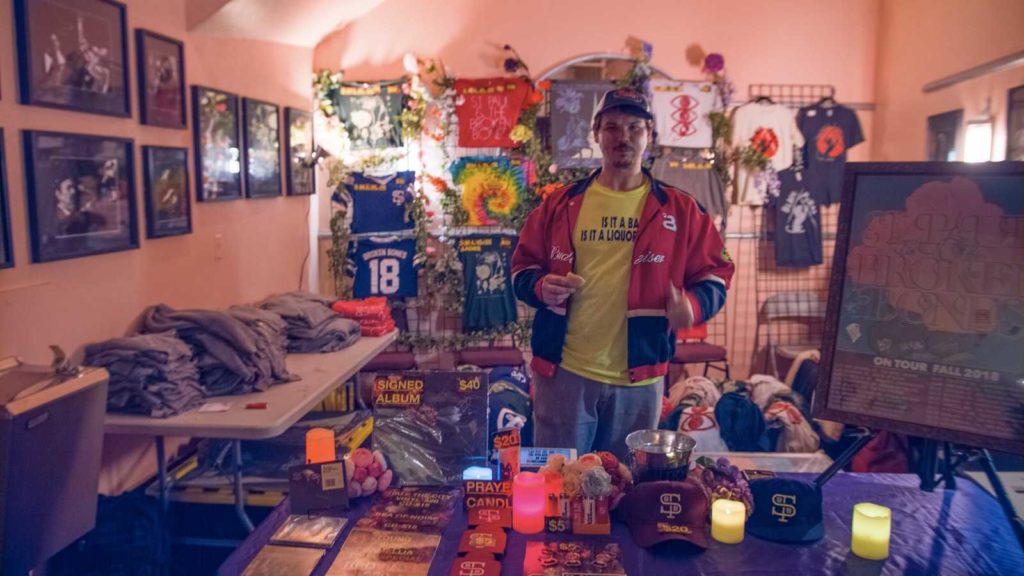
For many people working in Nashville’s live music industry, job prospects dried up in March — and 10 months into the pandemic, circumstances haven’t improved much.
2020 dealt 32-year-old Alex Ratliff a double blow. First he lost about a quarter of his income when the March 3 tornado flattened his part-time job at The Basement East.
He figured he would make it up the next week when he was on tour as a merch manager. But then, he said, “I was in Corpus Christie, Texas. And all of a sudden it was just like … ‘Everything’s shutting down. We’re going home.’ ”
With all his gigs dried up, Ratliff found himself in the same boat as millions of other Americans, and he turned to unemployment. He says it took about two months before he was getting regular payments and back pay.
Now he spends his time seriously budgeting and certifying his weekly unemployment claims — something he’s had to do for more than 40 weeks.
“I didn’t want to get on unemployment,” Ratliff said. “I wanted to work. … I want to get back to my job, but that’s just not happening.”
Last month, Ratliff ran out of benefits after using up all 39 weeks provided by the CARES Act. After that, he was in a kind of unemployment limbo. Congress had passed an extension to give another 11 weeks of help, but there was still no guidance on how to distribute it to people in his situation.
Last week his payments finally resumed.
Now, as he reminisces about going to concerts before the pandemic, he gets kind of emotional.
“Remember how great going to a show and drinking a beer and all this stuff was?” he exclaimed, with a mix of frustration and nostalgia.
Live music impact is ‘devastating’
Ratliff is just one of the workers in a vast ecosystem of live entertainment who have been impacted by the pandemic. A recent report from the Nashville Area Chamber of Commerce and Music Venue Alliance showed that about three quarters of workers at a group of independent venues in the city lost their jobs last year.
“That’s fairly devastating,” said Rupa DeLoach, head of research at the Nashville Chamber. “Not only do they have all of these, you know, their wait staff and things like that that are on W-2s. But you do have people that are the merch staff. You have the various musicians that are playing at these venues.”
More: Report: Nearly Three-Quarters Of Music Makers Have Lost Money During The Pandemic
The industry has been battered across the country, but in Nashville, it’s possible the effects are even starker, DeLoach says: Here, the concentration of music industry workers is anywhere from two to five times higher than other major cities like New York and Los Angeles.
Still, while the pandemic has halted much of live entertainment in its tracks, DeLoach says Nashville’s music scene is projected to experience record growth over the next ten years. But helping music industry workers navigate this recession will be key to coming back strong.
“We will rebound,” she said. “We just need to make sure that we are looking at who all is hurting — and how can we help people?”

